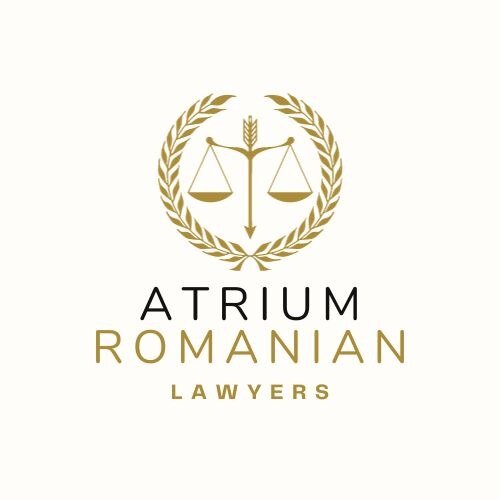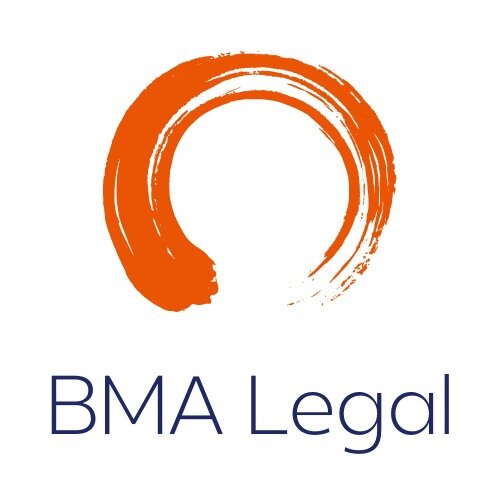Best Public-Private Partnerships (PPP) Lawyers in Bucharest
Share your needs with us, get contacted by law firms.
Free. Takes 2 min.
List of the best lawyers in Bucharest, Romania
About Public-Private Partnerships (PPP) Law in Bucharest, Romania
Public-Private Partnerships, often abbreviated as PPPs, are collaborative agreements between government entities and private sector organizations implemented to finance, design, build, operate, and maintain infrastructure projects or services. In Bucharest, Romania, PPPs are increasingly popular for large-scale projects in sectors such as transportation, healthcare, education, energy, and public utilities. These partnerships allow governments to leverage private sector expertise and funding in order to deliver public services efficiently while sharing risks and responsibilities. PPP law in Bucharest is shaped by both national Romanian legislation and European Union regulations, seeking transparency, competitive procedures, and clear allocation of risks and benefits.
Why You May Need a Lawyer
Navigating the complexities of PPP agreements in Bucharest can be challenging for both public authorities and private investors. You may require legal help in the following situations:
- Drafting, negotiating, or reviewing PPP contracts and agreements
- Understanding the legal obligations and rights of each party
- Participating in tenders and public procurement procedures related to PPP projects
- Managing disputes or claims arising from PPP arrangements
- Ensuring compliance with Romanian and European legal frameworks
- Addressing competition law and state aid questions
- Securing financing or managing regulatory approvals and permits
- Conducting legal due diligence before entering a PPP arrangement
- Advising on risk allocation and liability sharing
- Handling project implementation or termination issues
Local Laws Overview
PPP projects in Bucharest are primarily governed by Government Emergency Ordinance no. 39/2018 regarding public-private partnerships, supplemented by other relevant Romanian laws and EU directives. This legal framework outlines the definition, structure, and procedures for launching and managing PPP initiatives. Key aspects include:
- Clear procedures for identifying and approving PPP projects
- Regulated stages for competitive selection and tender processes
- Mandatory transparency and fairness in awarding contracts
- Requirements for feasibility studies and value-for-money assessments
- Rules on risk allocation between public and private partners
- Contractual clauses regarding duration, termination, and dispute resolution
- Alignment with State aid and competition standards as per EU law
- Obligations for full disclosure and monitoring of project outcomes
- Specific regulations for sector-based PPPs, such as in transport or energy
All PPP projects must also comply with wider public procurement, public finance, and environmental laws applicable in Bucharest.
Frequently Asked Questions
What is a Public-Private Partnership (PPP) in Bucharest?
A PPP is a formal collaboration between a public authority and a private company to develop and operate infrastructure or deliver public services, based on a specific legal contract that shares responsibilities, risks, and benefits.
What types of projects can be developed under PPPs?
PPPs are commonly used for large infrastructure projects like roads, bridges, hospitals, schools, water supply, and energy facilities, but may extend to any public service or asset development requiring significant investment and expertise.
Who can initiate a PPP project in Bucharest?
Both public authorities (such as the Bucharest Municipality or sector administrations) and private investors can propose PPP projects, subject to government approval and alignment with public interest goals.
What legal steps are involved in starting a PPP?
The process involves preparing a feasibility study, getting project approval, launching a competitive tender for private partners, negotiating and signing a PPP contract, and securing necessary permits and financing.
Are PPP contracts subject to public procurement rules?
Yes, all PPP contracts in Bucharest must follow public procurement rules outlined in Romanian legislation and comply with EU procurement and competition directives to ensure fair competition.
How are risks allocated in PPP agreements?
Risks are allocated based on which party can best manage them, often with financial, construction, or operational risks borne by the private sector and regulatory or demand risks shared or retained by the public authority.
What happens if there is a dispute between partners?
PPP contracts specify dispute resolution mechanisms, which may include negotiation, mediation, arbitration, or litigation under Romanian jurisdiction, depending on the terms agreed upon in the contract.
How long do PPP contracts typically last?
The duration varies depending on project scope and investment recovery, but most PPP contracts in Bucharest range from 10 to 30 years, with provisions for extension or early termination under defined circumstances.
Can foreign investors participate in PPPs in Bucharest?
Yes, both Romanian and foreign companies can participate in PPP tenders as long as they meet the eligibility criteria and comply with national and EU competition and procurement regulations.
What are the most common challenges faced in PPP projects?
Challenges often include unclear allocation of risks, complex regulatory compliance, delays in approvals or financing, disagreements during implementation, public resistance, and changing political priorities.
Additional Resources
If you are seeking more information or counsel regarding PPPs in Bucharest, consider contacting or researching the following resources:
- Romanian Ministry of Public Works, Development and Administration (Ministerul Lucrarilor Publice, Dezvoltarii si Administratiei)
- Bucharest City Hall (Primaria Municipiului Bucuresti) and respective sector authorities
- Romanian Public Procurement Agency (Agentia Nationala pentru Achizitii Publice)
- Chamber of Commerce and Industry of Bucharest
- Major Romanian law firms with specialized PPP and public procurement teams
- European PPP Expertise Centre (EPEC) guidelines and case studies
- Business forums or investment platforms focused on infrastructure in Romania
Next Steps
If you are considering involvement in a PPP project or need legal advice in Bucharest, it is important to consult with a qualified lawyer specialized in PPP, public procurement, or administrative law. Begin by gathering all relevant information about your proposed project, such as objectives, financing options, and potential partners. Outline your specific legal questions or concerns. Reach out to a reputable Bucharest-based law firm or seek recommendations from business or professional associations. During your consultation, clarify the scope of legal services, estimated costs, and timelines. Maintaining open and transparent communication with your legal advisor will help navigate the PPP process confidently and ensure your interests are protected throughout the project lifecycle.
Lawzana helps you find the best lawyers and law firms in Bucharest through a curated and pre-screened list of qualified legal professionals. Our platform offers rankings and detailed profiles of attorneys and law firms, allowing you to compare based on practice areas, including Public-Private Partnerships (PPP), experience, and client feedback.
Each profile includes a description of the firm's areas of practice, client reviews, team members and partners, year of establishment, spoken languages, office locations, contact information, social media presence, and any published articles or resources. Most firms on our platform speak English and are experienced in both local and international legal matters.
Get a quote from top-rated law firms in Bucharest, Romania — quickly, securely, and without unnecessary hassle.
Disclaimer:
The information provided on this page is for general informational purposes only and does not constitute legal advice. While we strive to ensure the accuracy and relevance of the content, legal information may change over time, and interpretations of the law can vary. You should always consult with a qualified legal professional for advice specific to your situation.
We disclaim all liability for actions taken or not taken based on the content of this page. If you believe any information is incorrect or outdated, please contact us, and we will review and update it where appropriate.

















